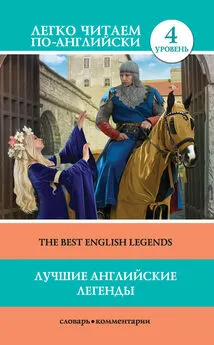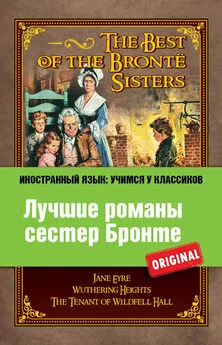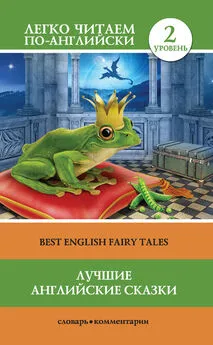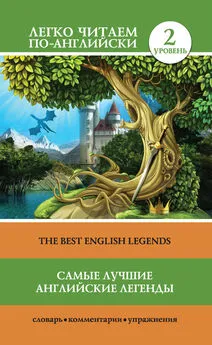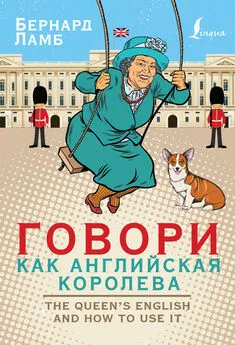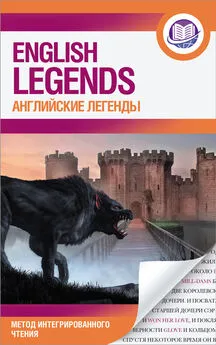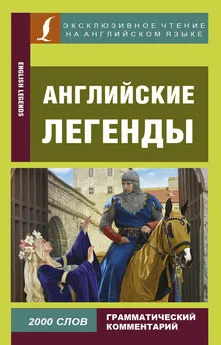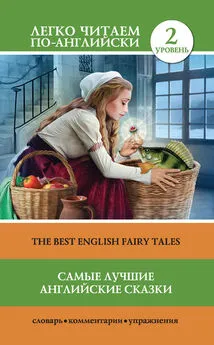Д. Демидова - Лучшие английские легенды / The Best English Legends
- Название:Лучшие английские легенды / The Best English Legends
- Автор:
- Жанр:
- Издательство:неизвестно
- Год:2017
- Город:Москва
- ISBN:978-5-17-104432-9
- Рейтинг:
- Избранное:Добавить в избранное
-
Отзывы:
-
Ваша оценка:
Д. Демидова - Лучшие английские легенды / The Best English Legends краткое содержание
Лучшие английские легенды / The Best English Legends - читать онлайн бесплатно ознакомительный отрывок
Интервал:
Закладка:
To this the emperor agreed, and rode to the place in the valley where he had slept. The groom of the chamber then said: “Will you not send messengers to the river’s source, my lord, and tell them to follow the track of your dream?”
And thirteen messengers were sent, who followed the river up until it issued from the highest mountain they had ever seen. “Behold our emperor’s dream!” they exclaimed, and they got to the top of the mountain, and descended the other side into a most beautiful and fertile plain, as Maxen Wledig had seen in his dream. Following the greatest river of all – probably it was the Rhine – the ambassadors reached the seaport on the North Sea, and found the fleet waiting with one ship larger than all the others; and they entered the ship and were carried to the fair island of Britain. Here they journeyed westward, and came to the mountainous land of Snowdon, where they could see the sacred isle of Mona, or Anglesey, and the fertile land of Arvon lying between the mountains and the sea. “This,” said the messengers, “is the land of our master’s dream, and in that fair castle we shall find the maiden who our emperor loves.”
So they went to the castle of Caernarvon, and in that impressive fortress was the great hall, with the two youths playing chess, the old man carving chessmen, and the maiden in her chair of gold. When the ambassadors saw the fair Princess Helena, they fell on their knees before her and said: “Empress of Rome, all hail!”
But Helena half rose from her seat in anger as she said: “What does this mockery mean? You seem to be men of gentle breeding, [11] of gentle breeding – знатного происхождения
and you are evidently messengers: why, then, do you mock me thus?”
But the ambassadors calmed her anger, saying: “Do not be angry, lady: this is no mockery, for the Emperor of Rome, the great lord Maxen Wledig, saw you in a dream, and he swore to marry none but you. Which, therefore, will you choose, to accompany us to Rome, and there be made empress, or to wait here until the emperor can come to you?”
The princess thought deeply for a time, and then replied: “I would not be too credulous, or too hard of belief. If the emperor loves me and would like to marry me, let him find me in my father’s house, and make me his bride in my own home.”
After this the messengers returned to the emperor in haste. When they reached Rome and informed Maxen Wledig of the success of their mission he at once gathered his army and marched across Europe towards Britain. He conquered Britain and eventually reached the fair country of Snowdon. He entered the castle and saw, at last, with his own eyes first the two youths, Kynon and Adeon, playing chess, then their father, Eudav, the son of Caradoc, and then his beloved, beautiful Helena, daughter of Eudav.
“Empress of Rome, all hail!” Maxen Wledig said; and the princess bent forward in her chair and kissed him, for she knew he was her destined husband. The next day they were married, and the Emperor Maxen Wledig gave Helena as dowry all Britain for her father, the son of Caradoc, and for herself three castles, Caernarvon, Caerlleon, and Caermarthen, where she lived in turn; and in one of them was born her son Constantine, the only British-born Emperor of Rome. To this day in Wales the old Roman roads that once connected Helena’s three castles are known as “Sarn Helen.”
The Tale of Gamelyn
In the reign of King Edward I, [12] King Edward I – Эдуард I, правил Англией в 1272–1307 гг.
there lived in Lincolnshire a noble gentleman, Sir John of the Marches. He was now old, but was still a model of all courtesy and a perfect gentle knight. He had three sons, of whom the youngest, Gamelyn, was born in his father’s old age, and was greatly beloved by the old man; the other two were much older than he, and John, the eldest, had already developed a wicked character. Gamelyn and his second brother, Otho, respected their father, but John had no respect or obedience for the good gentleman, and was the chief trouble of his declining years, as Gamelyn was his chief joy.
At last old age and weakness overcame the worthy old Sir John, and he was forced to take to his bed, [13] take to one’s bed – слечь в постель
where he lay sadly thinking of his children’s future, and wondering how to divide his possessions fairly among the three. Fearing that he could commit an injustice, Sir John sent throughout the district for wise knights, asking them to come hastily, if they wished to see him alive and help him. When the country squires and lords, his near neighbours, heard of his serious condition, they hurried to the castle, and gathered in the bedchamber, where the dying knight greeted them thus:
“Lords and gentlemen, I may no longer live; but I pray, for my sake, [14] for my sake – ради меня
to help me to divide my lands among my three sons. For the love of God, do it justly, and forget not my youngest, Gamelyn. Seldom does any heir to an estate help his brothers after his father’s death.”
The friends whom Sir John had invited thought long over the disposal of the estate. Most of them wanted to give all to the eldest son, but a strong minority said they must not forget the second. They all agreed, however, that Gamelyn might wait till his eldest brother chose to give him a share of his father’s lands. At last it was decided to divide the inheritance between the two elder sons, and the knights returned to the room where the brave old knight lay dying, and told him their decision. He summoned up strength [15] summon one’s strength – собраться с силами
enough to protest against their plan, and said:
“No, by Lord, I can yet leave my lands to whom I wish: they still are mine. Then be silent, neighbours, while I make my will. To John, my eldest son, and heir, I leave five ploughlands, my dead father’s heritage; and same to my second, which I myself won in battles; everything else I own, in lands and goods and wealth, goes to Gamelyn, my youngest. And I ask you, for the love of God, not to forsake, but guard his helpless youth and let him not be denied his wealth.”
Then Sir John, satisfied with having proclaimed his will, died with Christian resignation, leaving his little son Gamelyn in the power of the cruel eldest brother, now, in his turn, Sir John.
Since the boy was very young, the new knight, as a natural guardian, got the control of Gamelyn’s land, vassals, education, and nurture; but he did not fulfil his duty, for he clothed and fed the boy badly, and neglected his lands, so that his parks and houses, his farms and villages, fell into decay. [16] fall into decay – прийти в плачевное состояние, разрушаться
The boy, when he grew older, noticed this and tried to change it, but did not realise the power in himself with which he tried to redress the wrongs. [17] redress the wrongs – ( зд. ) возместить ущерб
Later, though, he fully understood what injuries he could inflict others, so no man would dare to face him in fight when he was angry, so strong a youth had he become.
While Gamelyn, one day, walking in the hall, was thinking of the ruin of all his inheritance, Sir John came in, and, seeing him, called out: “How now: is dinner ready?”
Furious at being addressed as if he were just a servant, Gamelyn replied angrily: “Go and do your own baking; I am not your cook.”
Sir John was astonished. “What, my dear brother, is that the way to answer? You have never addressed me so before!”
“No,” replied Gamelyn, “because until now I have never considered all the wrong you have done me. My parks are broken open, my deer are driven off; you have deprived me of my armour and my horses; all that my father left to me is falling into ruin and decay. God’s curse upon you, false brother!”
Sir John was now angry beyond all measure, [18] beyond all measure – вне всякой меры
and shouted: “Stand still, vagabond! What right do you have to speak of land or vassals? Thou shall learn to be grateful for food and the roof above your head.”
“A curse upon him that calls me a vagabond! I am no worse than yourself; I am the son of a lady and a good knight.”
In spite of all his anger, Sir John was a careful man, thinking of his own safety. He would not risk an encounter with Gamelyn, but called his servants and told them to beat him well, till he should learn better manners. But when the boy understood his brother’s intention he promised that he would not be beaten alone – others should suffer too, and Sir John not the least. Leaping on to the wall, he got a pestle standing by the wall, and so boldly attacked the servants, that he drove them into a heap. Sir John had not even got that small amount of bravery: he fled to the next room and shut the door, while Gamelyn cleared the hall with his pestle, and chased the cowardly grooms.
“Brother,” said Gamelyn, when he finally saw where the latter was hiding, “come a little nearer, and I will teach you how to play this merry game.”
“No, I will not come till you put down that pestle. Brother, be angry no more, and I will make peace with you. I swear it by the grace of God!”
“I was forced to defend myself,” said Gamelyn, “I could not let grooms beat a good knight’s son; but now grant me one gift, and we shall soon be at peace with each other.”
“Yes, certainly, brother; ask for your gift, and I will give it readily. But indeed I was only testing you, for you are so young that I doubted your strength and manliness. It was only a pretence of beating that I meant.”
“This is my request,” said the boy: “if there is to be peace between us you must give to me all that my father left me while he was alive.”
To this Sir John agreed with apparent willingness, and even promised to repair the decayed houses and restore the lands and farms; but though he showed content with the agreement and kissed his brother with affection, yet he was inwardly planning a treachery against the unsuspecting youth.
Shortly after this quarrel between the brothers a wrestling competition was announced, the winner of which would become the owner of a fine ram and a ring of gold, and Gamelyn decided to try his powers. Accordingly he asked a horse from Sir John, who offered him his choice of all the horses in the stable, and then curiously questioned him as to his purpose. The lad explained that he wished to compete in the wrestling match, hoping to win honour by bearing away the prize; then he mounted his horse and rode away merrily, while the false Sir John locked the gate behind him, praying that he might get his neck broken in the contest.
Конец ознакомительного фрагмента.
Текст предоставлен ООО «ЛитРес».
Прочитайте эту книгу целиком, купив полную легальную версию на ЛитРес.
Безопасно оплатить книгу можно банковской картой Visa, MasterCard, Maestro, со счета мобильного телефона, с платежного терминала, в салоне МТС или Связной, через PayPal, WebMoney, Яндекс.Деньги, QIWI Кошелек, бонусными картами или другим удобным Вам способом.
Читать дальшеИнтервал:
Закладка:
